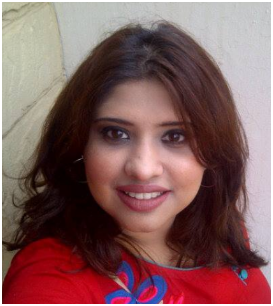4th July 2014 London, UK
Assisting forced marriage victims: the overseas perspective
Neelam Farooq: senior Consular Assistance, British High Commission Islamabad.
It’s Monday morning and I walk into the office with yesterday’s rescue still echoing in my mind, which was in essence a cry for help from a teenage girl Yasmeen*, who is a potential victim of forced marriage. We deal with over 100 cases of Forced Marriages every year and offer support to young British nationals in extremely stressful situations.
Yasmeen was reported missing by her school in the UK to the police and the Forced Marriage Unit. She has a secret mobile and can only communicate at night. During my last conversation with her she was desperate to get out, it was difficult to understand her as she was whispering but it was clear we were her last hope. She is restricted to her house and is not allowed to go out. She has been under a huge amount of emotional pressure from her family; her mother had even threatened to commit suicide if she didn’t go through with the marriage.
Sadly many victims that we assist have been subjected to this sort of emotional blackmail and sometimes physical abuse as well. I knew we needed to act quickly but cautiously as we don’t want her to be at any kind of risk. I liaised with the Forced Marriage Unit to finalise the plans to visit her and if required rescue her from that situation. I requested support from local police to ensure everyone’s safety during the rescue. Sometimes rescues can be very heated so police help us to diffuse any tensions with the family or wider community.
On the day of the visit we left early morning as she is in a remote location. With the help of local police we were able to rescue her. She was very confused and fearful of the repercussions. My initial conversation is really important as she has made a huge decision and there are lots of questions and fears in her mind. We assured her that she is safe and will be returned to the UK safely. Yasmeen had so many questions about what would happen to her once she got back to the UK. I reassured her that she would receive specialist support from Southall Black Sisters, a UK charity that provides a repatriation service for British Nationals returning from forced marriage situations.
Yasmeen will spend the night in the refuge that is part-funded by the British High Commission in Islamabad. I have just come back to office after visiting Yasmeen in the refuge. I handed over her flight tickets and Emergency Travel Document as her family had taken her passport away from her. She was still feeling incredibly emotional and confused but she was so grateful for our assistance and knows that ultimately she has made the right decision for her.
Forcing a British Nationals to marry overseas has now become a criminal offence in England and Wales. Yasmeen will receive support and advice if she wishes to pursue a prosecution against her family for attempting to force her to marry.
Apart from the reactive work we also engage with communities on raising awareness on these sensitive issues. I am meeting a local theatre group consisting of young artists who are very passionate about the issue of forced marriage and have done Theatre for Development ( TFD) in the past. TFD is a local initiative that takes up social issues through community engagement. I am working with them to develop script for a series of TFD workshops that will be based on real life case studies. It will engage the local community to share their views and generate a healthy debate about forced marriage and its disastrous consequences involved.
Working in the Consular team and helping the most vulnerable British nationals has been a rewarding experience. The fact that you have saved someone from extremely difficult situation and helped them in achieving their dreams; which in some cases can just be to continue education is very fulfilling.
